Psilocybin spores are the reproductive cells of psilocybin-producing mushrooms. These spores contain the genetic material needed to grow new mushrooms. They are legal in many places as they do not contain psilocybin themselves.
Psilocybin Spores Unlock the secrets of nature’s most intriguing fungi.These tiny reproductive cells hold the genetic blueprint for psilocybin-producing mushrooms, offering endless possibilities for exploration and cultivation. Perfect for researchers and enthusiasts, psilocybin spores are your gateway to understanding the fascinating world of psychedelics. Dive into the mystery and discover the potential within each spore.
Psilocybin spores are microscopic and are usually collected on spore prints or suspended in syringes for cultivation. They are a key component in the life cycle of psilocybin mushrooms, initiating growth when conditions are favorable. While spores themselves are legal in many regions, the cultivation of psilocybin mushrooms from these spores may be regulated or prohibited. Enthusiasts often study spore germination to understand fungal biology and the unique characteristics of different strains.
The DEA Clears the Path for Psilocybin Spores
In a groundbreaking move that has sent shockwaves rippling through the psychedelic community, the Drug Enforcement Administration (DEA) has formally acknowledged that psilocybin spores are not considered controlled substances under federal law. This surprising declaration lands like a meteor crashing into the long-contentious landscape surrounding these mysterious fungal propagules and their mind-altering mushroom progeny.
For decades, a dense fog of legal ambiguity has swirled around psilocybin spores, those tiny reproductive vectors that can germinate into the psilocybin “magic” mushrooms renowned for their psychedelic properties. A patchwork of contradictory laws, court rulings, and statements from government agencies left enthusiasts, researchers, and entrepreneurs alike wading through a murky quagmire of uncertainty.
That haze now begins to clear with the DEA’s letter to the recently launched company Psymbiotic Solutions. In unambiguous terms, the federal agency stated that psilocybin spores “do not contain any controlled substances” and are therefore not regulated under the Controlled Substances Act. This definitive ruling effectively greenlights the nationwide buying, selling, studying, and cultivation of these fungal seeds without fear of federal prosecution.
The Spore Laws
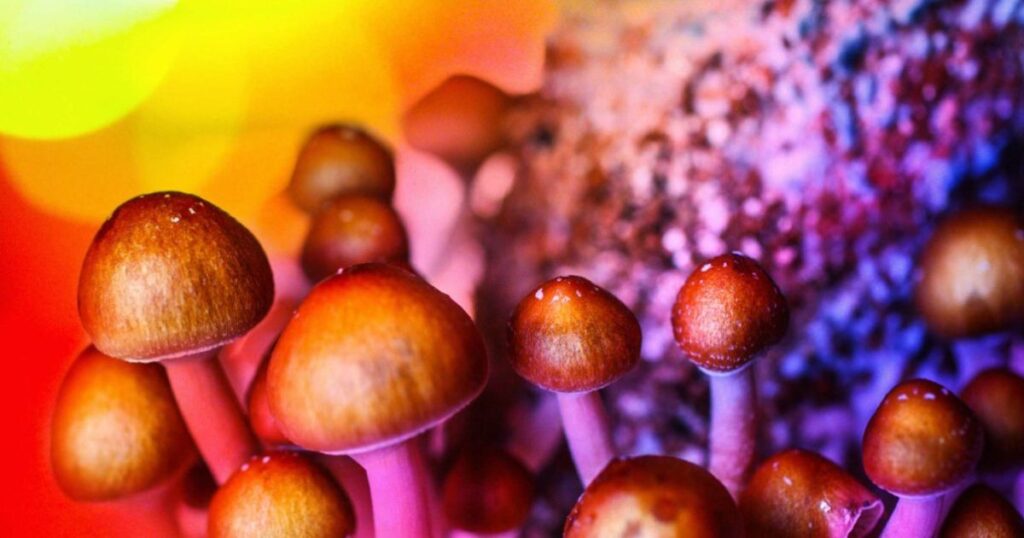
To understand the magnitude of this move, one must look at the twisted history and inconsistent patchwork of regulations that have governed psilocybin spores across the United States. While federal law clearly prohibits the possession and distribution of psilocybin and psilocin (the psychoactive compounds found in certain mushrooms), the legal status of the spores that can develop into these fungi remains murkier.
On the federal level, legal precedent seemingly favored the legality of spores. In 1976, a Denver couple was famously acquitted of manufacturing psilocybin mushrooms because the spores themselves contained no controlled substances. Multiple courts over the decades have upheld similar logic in various jurisdictions.
However, the DEA and other federal agencies historically issued vague and even contradictory statements on spore legality, leaving ample room for confusion. Some agencies cautioned that while the spores alone may be legal, their intended use for cultivating controlled substances could open the door for charges like “conspiracy” or operating a drug manufacturing operation.
Inconsistent Laws
This legal maze only became more tangled on the state level, where legislatures enacted a dizzying array of inconsistent laws. In some states like Georgia and Idaho, psilocybin spores are outright illegal and considered equivalent to the mushrooms themselves. Other states like California and Florida seemed to allow spores by remaining silent on the issue. Still others permitted limited cultivation or possession of small amounts, creating complex thresholds and caveats.
Understandably, this patchwork of ambiguity chilled entrepreneurial activities and research surrounding psilocybin spores. Companies risked costly legal battles if they crossed invisible boundaries. Prospective cultivators for therapeutic, religious or personal purposes faced a murky minefield potentially leading to fines or criminal charges, even if no controlled substances were ever produced.
The DEA’s Letter
The revelation from the DEA this month that serves as a clarion call for the unshackling of psilocybin spores. When the Denver-based company Psymbiotic Solutions reached out for guidance on the legality of their spore products, the DEA’s response pulled the rug out from under decades of ambiguity.
In a letter addressed to Psymbiotic, the DEA declared in no uncertain terms: “Psilocybin spores do not contain any controlled substances” before confirming that the spores “are not regulated under the Controlled Substances Act.” The agency cited the long legal history of spore cases being thrown out when no controlled substances were present.
For Psymbiotic’s founder, Iyes Hamal, this formal validation marked a profound milestone after “dealing with legal gray areas our whole career.” The DEA’s stance effectively resets the legal landscape, blessing companies and individuals to research, develop, distribute, and cultivate psilocybin spores nationwide, at least on the federal level.
The Ripples of Spore Legality
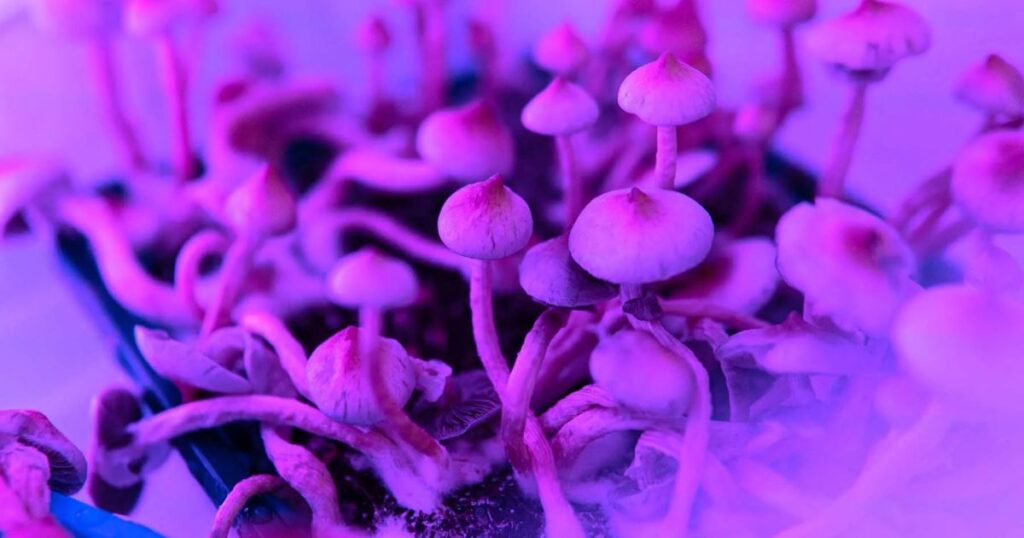
While psilocybin mushrooms (and their psychoactive compounds) remain strictly scheduled substances under federal law, this DEA ruling on spores carries sweeping implications. On the commercial front, companies can now explore new frontiers in fungal research and development.
Psilocybin spores were always a peculiar paradox for businesses – legal enough to technically sell, but still teetering in a netherworld of semi-legality that scared off many larger investors and entrepreneurs. The DEA’s stance removes that ominous legal cloud, allowing companies to push ahead with spore research, spore products, grow kits, and technologies in the psilocybin space.
Some companies have already seized this opportunity. In addition to Psymbiotic, the respected spore vendor Rainier Mushrooms instantly updated its website with news of the DEA announcement, reassuring customers that its entire catalog of spores “remain completely legal” at the federal level. DoubleBlind, a cultural magazine centered around psychedelics, quickly launched its own spore store and grew course capitalizing on the DEA clarification.
Doors Open for Individual Cultivators
Beyond the commercial realm, this DEA announcement holds profound implications for private citizens interested in cultivating psilocybin mushrooms for personal use, spiritual exploration, or citizen science. While possession and growth of the mushrooms themselves remain strict criminal offenses in most circumstances, the newly validated legality of their spore precursors opens the door for increased home cultivation.
Of course, legality still depends heavily on location and quantities. A number of cities and states have decriminalized small amounts of psilocybin or deprioritized enforcement. Advocates envision the DEA ruling empowering more home cultivators to safely grow their own mushrooms, joining an already thriving community that will now enjoy greater legal reassurance.
Some also foresee increased interest and growth around psilocybin-focused religious and spiritual movements that gain legal safe harbor to pursue their fungal sacraments. The ruling lends new credence to groups studying and consuming mushrooms as traditional entheogenic medicines.
Meticulously Research
The complex patchwork of laws still means cultivators must meticulously research statutes in their local areas. Georgia’s absolute prohibition on psilocybin spores demonstrates that federal guidance does not negate more strict state laws. Clear thresholds for possession and distribution will remain location-dependent.
Yet still, the DEA’s normalization of spore culture casts it as more socially accepted practice, chipping away at broader stigmas surrounding psilocybin. For many, this is a critical step toward eventual drug policy reforms regarding the mushrooms themselves.
Read More:
PSILOCYBE CUBENSIS
The Mushroom Movement Accelerates
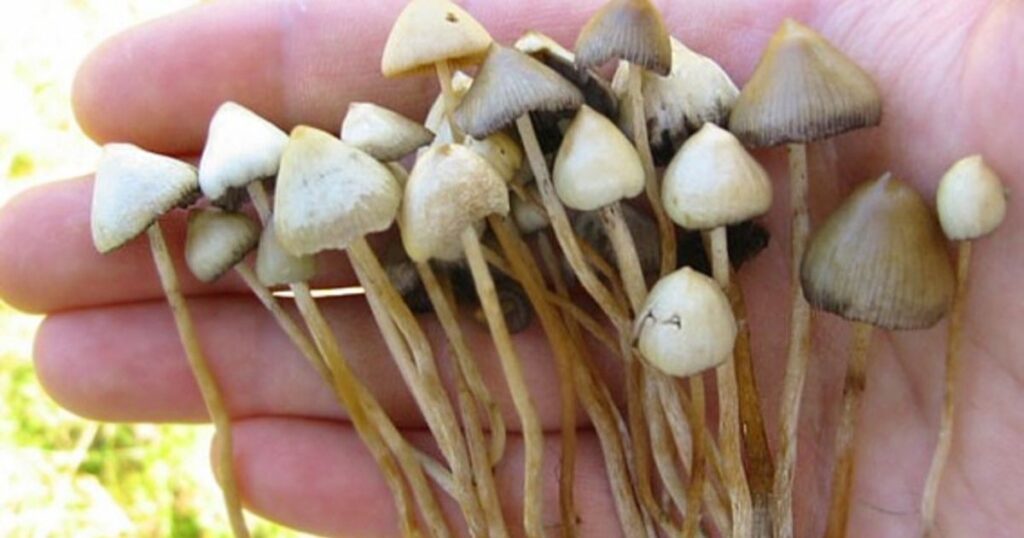
While this DEA ruling strictly concerns only the spores, many view it as a symbolic leap for the burgeoning psilocybin mushroom movement itself. After decades of existing in legal shadowlands, the psychedelic renaissance around these fungi now enters the cultural mainstream with more official legitimacy.
The DEA’s public stance aligns with a growing wave of acceptance and curiosity around the potential benefits of psilocybin and psychedelics. Multiple cities have decriminalized or legalized psilocybin possession. Respected research institutions continue publishing studies around psilocybin’s therapeutic potential for treating mental health conditions like depression, anxiety, addiction and more.
Where once society viewed these fungi through a counterculture lens of illicit recreation, we now see a paradigm shift recognizing their place in medicine cabinets and disease treatment protocols. The “food and drug” designation is very much in flux.
Ostracization And Criminalization
For stalwart mushroom advocates who faced ostracization and criminalization, these cultural and legal developments mark a profound sea change. Long dismissed and forced into shadows, their calls for embracing the magic of these natural medicines now meet more open ears and minds in the mainstream.
While challenges lie ahead navigating continued drug scheduling conflicts and patchwork state laws, this DEA milestone delivers a shockwave accelerating broader momentum. If the spores themselves can be brought to light through federal validation, might a similar reckoning await their psychoactive mushroom offspring one day?
Only time will tell how far the ripples extend. For now though, the murky clouds of ambiguity have parted to let the spores of change take root and embark their mystical journey into the light.
FAQs
Are psilocybin spores now legal federally?
Yes, the DEA has stated that psilocybin spores containing no controlled substances are not regulated under the Controlled Substances Act.
Does this ruling make psilocybin mushrooms legal?
No, psilocybin mushrooms themselves remain strictly illegal controlled substances under federal law.
Can I grow psilocybin mushrooms from legal spores?
It depends on your state and local laws. While spores are legal federally, mushroom cultivation may still be prohibited in certain areas.
Are all spore products and grow kits now legal to sell?
According to the DEA, companies can research, develop, distribute, and sell psilocybin spores and related products nationwide without federal legal issues.
What are the implications for psychedelic research?
The ruling allows more open research into psilocybin spores, potentially leading to new therapeutic, technological and scientific discoveries.
Conclusion
The DEA’s validation of psilocybin spore legality marks a pivotal milestone in the psychedelic renaissance surrounding these fungi. While mushrooms remain scheduled, the spore ruling chips away at stigmas and opens new avenues for businesses, cultivators, and researchers. It signals growing mainstream acceptance of psilocybin’s potential benefits. However, a patchwork of state and local laws still governs mushroom cultivation and possession.

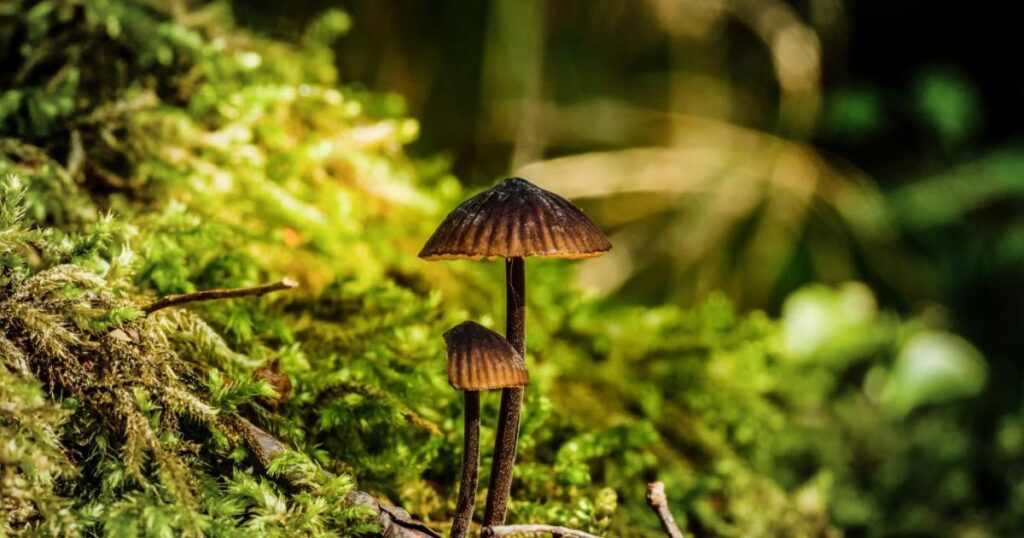
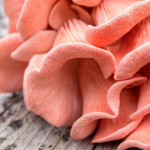
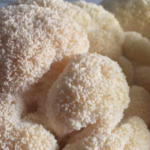
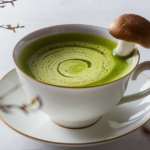
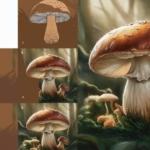
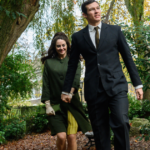
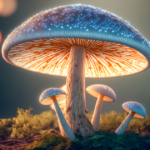
1 thought on “DEA Validates Legal Status of Psilocybin Spores”